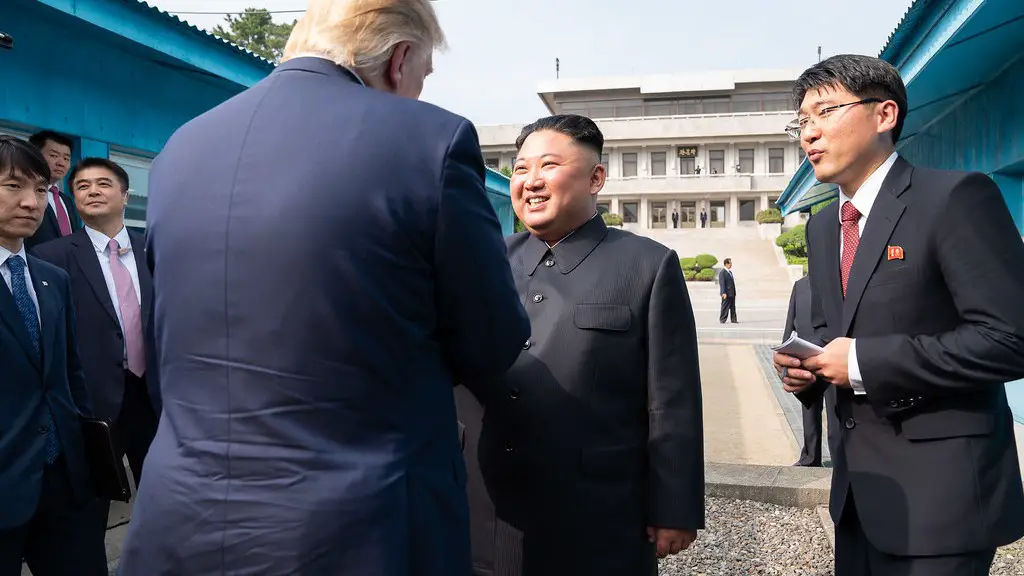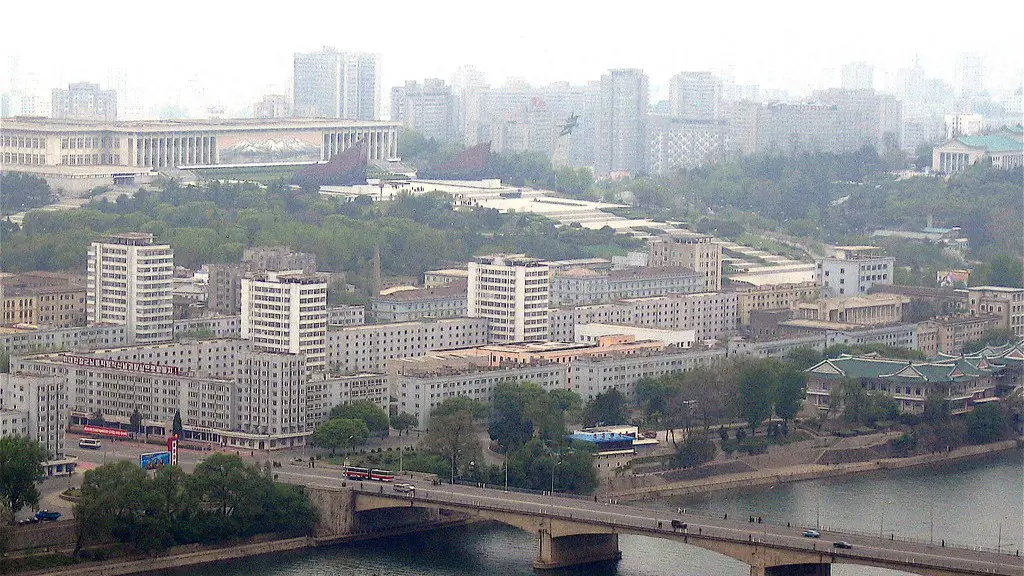North Korea’s Political and Economic Relations with the World
When discussing the future of North Korea, it is important to consider the country’s political and economic relations with the rest of the world. North Korea’s dysfunctional relationship with the United States, the United Nations, and South Korea led to the implementation of sanctions against the country in 2006, further isolating it from the global community. These sanctions, which were designed to curtail the country’s nuclear program, have hindered North Korea’s economic development by blocking exports and restricting imports. North Korea is highly reliant on imports, resulting in a struggling economy and widespread food insecurity.
Despite the sanctions, North Korea has managed to establish a number of diplomatic relationships with countries such as China, Russia, and some European countries. China has been North Korea’s major ally and source of economic support, providing the country with much needed oil, food, and technology. North Korea has also developed economic ties with South Korea, though these have become strained in recent years due to the North’s nuclear weapons program.
North Korea’s Leadership and Future
North Korea’s political and economic future is closely tied to the leadership of the current and past leaders of the country. Kim Jong-un assumed power in 2011 following the death of his father, Kim Jong-Il. Under Kim Jong-un, North Korea has continued to pursue its nuclear weapons program and has continued to engage in hostile, anti-Western rhetoric. In 2017, it was estimated that the North had as many as 60 nuclear weapons.
Kim Jong-un’s political style has been characterised as unpredictable, aggressive, and non-conciliatory. He has maintained a tight grip on power and has been accused of human rights abuses. Kim Jong-un’s successor is unlikely to be much more open or conciliatory, as the ruling party is dominated by members of the Kim family. Even if Kim Jong-un were to step down, it is possible that his successor could be another hardliner, thus perpetuating the country’s current trajectory.
North Korea’s Role in Global Affairs
North Korea has also played a significant role in global affairs, although its influence is oftentimes exaggerated. Its erratic behavior has resulted in a number of standoffs between the country and other nations, most notably the United States. North Korea is the only country to have tested nuclear weapons this century, and its pursuit of nuclear weapons has prompted strong condemnations from the international community.
Due to North Korea’s aggressive behavior, it has become increasingly isolated from the international community. The Pyongyang government’s lack of transparency, refusal to adhere to international law, and disregard for human rights has led to its global reputation as an unstable and dangerous country.
The Future of North Korea
Looking ahead, it is difficult to predict exactly what the future holds for North Korea. If Kim Jong-un’s successor follows in the same footsteps, it is likely that the country’s current trajectory will continue. If the current stand-off with the United States and other nations escalates further, it is possible that we could see a military confrontation between the two countries. On the other hand, if diplomatic efforts between North Korea and the international community are successful, it is possible that the country could be slowly integrated into the global community and stop its pursuit of nuclear weapons.
One thing is certain — North Korea will remain an unpredictable and volatile player on the world stage and its future development will be closely monitored by the international community.
Reactions of Other Nations
The reactions of other nations must also be taken into consideration when assessing North Korea’s future. In reaction to the North’s nuclear program, the international community has expressed strong criticism and implemented harsh economic sanctions. Countries such as South Korea and Japan, both of which have had a long history of conflict with North Korea, have expressed particular concern over the situation.
The United States has taken a firm stance on North Korea, deeming the country a threat to global security. President Trump has often taken an aggressive approach to North Korea, which has seen some success, such as his historic nuclear summit with Kim Jong-un in Singapore in 2018. The United States has also sought to use its economic leverage to put pressure on North Korea, most notably by sanctioning countries who do business with Pyongyang.
International Coalitions and Sanctions
International coalitions and sanctions have been largely effective in terms of restricting North Korea’s nuclear program. Sanctions have hindered the country’s economic development, led to food shortages, and put significant financial pressures on the government. However, the North’s nuclear program has continued to advance and be a significant global concern.
In recent years, it has been proposed that North Korean denuclearization could be achieved through diplomacy, with some suggesting that the United States should work with China, Russia, South Korea, and other allies to develop a lasting solution to the issue. This has led to some positive steps, such as the June 2018 nuclear summit between Kim Jong-un and President Trump, which has seen some progress towards the denuclearization of the Korean peninsula.
Human Rights and Other Issues
North Korea’s future must also take into account humanitarian issues such as human rights. The North Korean government has been accused of numerous human rights abuses, including prison camps, forced labor, and torture. North Korea’s decades of isolation and oppressive tactics have led to the marginalisation of its people, many of whom are living in poverty.
In light of this, there has been increased pressure from the international community for the North Korean government to improve its human rights record. Unfortunately, this does not appear to have had any noticeable effect on either the government or its citizens.
North Korea’s Potential for Reformation
Despite its current situation, North Korea may have some potential for reform. The country has begun to open up to the international community, despite the slow progress. Increased economic ties may open the door for more positive developments, and its citizens may benefit from increased access to technology and other resources. In addition, the North’s newfound diplomatic relations may lead to greater understanding and cooperation between the country and other nations.
While these developments may seem promising, the future of North Korea remains uncertain. It is still possible that the country could continue on the same path, and that human rights abuses could continue to be a major issue. It is clear that North Korea will remain an unpredictable factor in international affairs for some time to come.
China’s Strategic Interests in North Korea
China has a strategic interest in North Korea, as the country’s closest ally and economic partner. China has long viewed North Korea as a buffer state between itself and its adversary, South Korea, and has sought to insulate the country from Western influence. China has provided North Korea with extensive economic aid and has largely been the country’s most reliable ally, despite its recent attempts to distance itself from the regime.
Given the strategic interests of China in North Korea, it is unlikely that the Chinese government will take any strong action to oppose the Pyongyang government. It is also possible that, if the North Korean government were to collapse or become more open, that China could take advantage of the situation by increasing its influence in North Korea and the region.
International Opinion and Possible Outcomes
It can be difficult to gauge the international opinion on North Korea and its future. Many countries remain wary of the Pyongyang government and the risks posed by its nuclear arsenal, while others are hopeful that diplomatic solutions can be found. It is clear, however, that the North Korean regime will remain a significant international concern for the foreseeable future.
The possible outcomes for North Korea’s future remain uncertain. It is possible that the country could reform and open up to the international community, or that it could remain closed off and continue its belligerent behavior. It is also possible that military action could be taken against the country, leading to serious consequences for all parties involved. Only time will tell what the future holds for North Korea.





